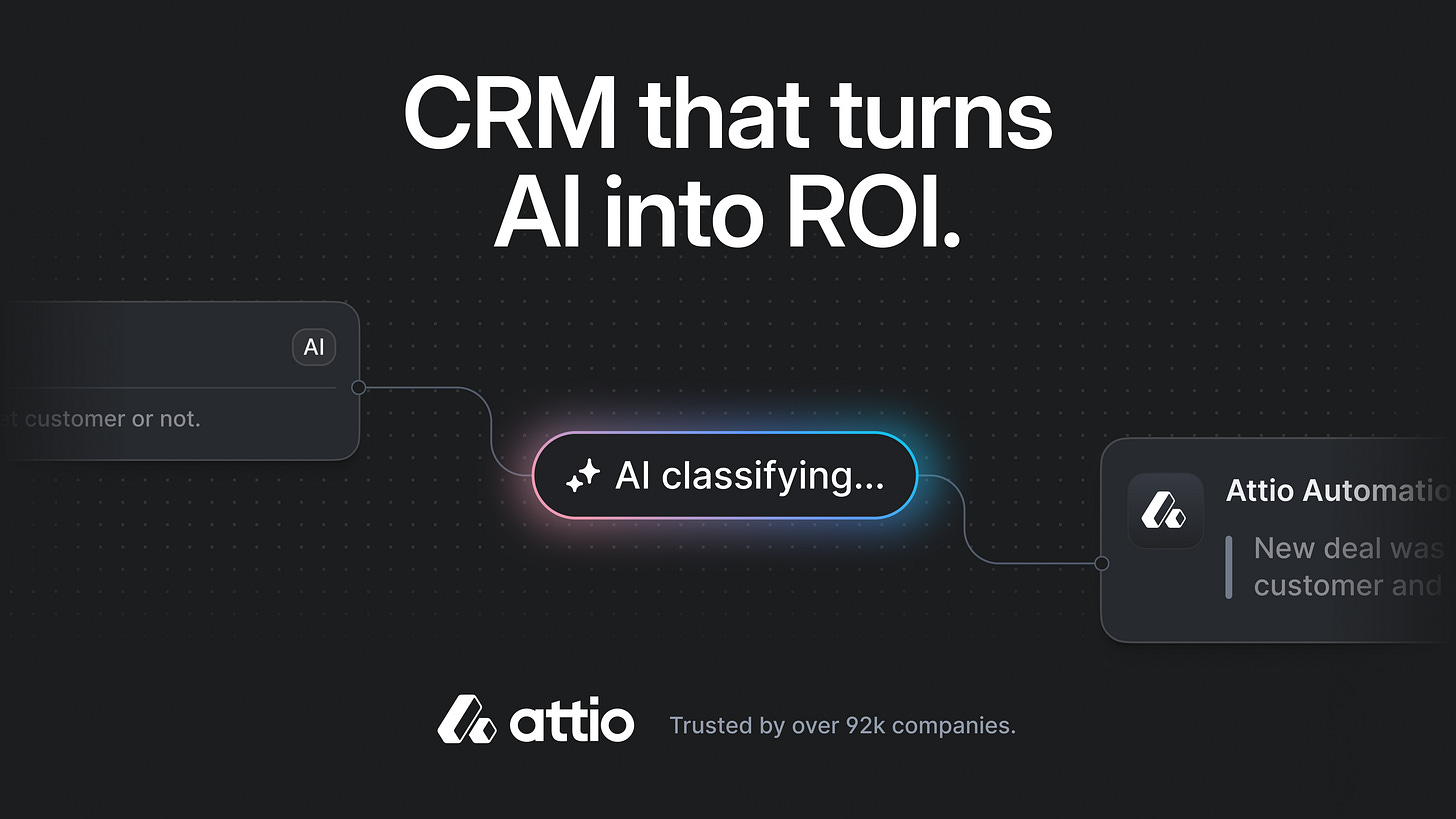🌊 Fundraising toolbox
The 80/20 fundraising guide I’d want if I were raising.
I’m Ivan. This is a newsletter about startups and investing—for founders and investors. Each week I cover how top 1% startups use ai, raise, and grow.
Hey folks,
This week’s drop is the 80/20 of fundraising resources for early-stage founders. These are the guides, benchmarks, and tools I find myself sending to founders again and again, so I pulled them into one place.
I’ll refresh it quarterly with updated valuations, metrics, and new resources. In the meantime, I’d love your feedback, just hit reply (I read and answer every one).
Lets go:
This week’s sponsor is AI CRM Attio (raised $52M from Google Ventures):
Attio is the AI-native CRM for the next era of companies: Connect your email and calendar, and Attio instantly builds a CRM that matches your business model — with all your companies, contacts, and interactions enriched with actionable insights.
With Attio, AI isn’t just a feature - it’s the foundation. You can do things like:
Instantly prospect and route leads with research agents
Get real-time insights from AI during customer conversations
Build powerful AI automations for your most complex workflows
Fast-growing companies like Granola, Modal, Replicate and more are all experiencing the future of GTM with Attio.
1. Incentives: how vc’s think.
Show me the incentive and I will show you the outcome. (Charlie Munger)
If you don’t understand venture capital incentives, and we’ve talked about how to fail at fundraising in the past, you are shooting yourself in the foot for no good reason.
Read first: Venture Deals by Brad Feld.
Deep shelf:
AVC Blog - Fred Wilson
Secrets of Sand Hill Road - Scott Kupor
Sam Altman’s Playbook - Sam Altman
Elad’s Blog - Elad Gil
Above the Crowd - Bill Gurley
PG blog - Paul Graham
Naval Archive - Naval
Pmarca Archive - Marc Andreessen
YC Startup Library - Y Combinator
BVP Memos - Bessemer Venture Partners
Oaktree Memos - Oaktree Capital
2. Process: build & ride momentum.
Fundraise like a surfer — plan to take on investors in sets. (FirstRound)
The 80/20:
Systematise → track, measure, iterate.
Batch your outreach → momentum compounds.
Target + personalise → spray-and-pray kills you.
Warm intros are king → always.
Fundraising is sales → The art is being persistent enough to stay top-of-mind without crossing into annoying.
Find momentum, ride it → speed creates more speed.
Guides:
Fundraising guides - Y Combinator
Fundraising wisdom - First Round
Fundraising - Creandum
Warm intros - OpenVC
3. Equity & Compensation.
Equity is your most expensive currency, use it wisely. Protect your startup with vesting.
Founding equity:
Foundational equity split by Carta
Co-founder equity split by Carta
ESOP:
Cash:
Founder Compensation - Startup Riders
4. Proof Points: metrics and PMF.
At pre-seed your story is the metric. At seed, it’s traction quality. At Series A, it’s proof of PMF.
Early-stage signals
Liquidity Quality - Bill Gurley
What is good retention - Lenny Rachitsky
Churn - David Skok
Benchmarks
5. Valuations.
Valuation sets the expectations you’ll live with. Price today dictates the bar for the next round.
6. Storytelling: decks, data rooms, narrative.
Your deck is the story investors repeat when you’re not in the room.


